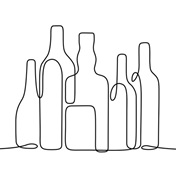Women and men tend to have different types of stress-related psychological disorders. Women have greater rates of depression and some types of anxiety disorders than men, while men have greater rates of alcohol-use disorders than women.
“We know that women and men respond to stress differently,” said Tara M. Chaplin, associate research scientist at Yale University School of Medicine and first author of the study. “For example, following a stressful experience, women are more likely than men to say that they feel sad or anxious, which may lead to risk for depression and anxiety disorders. Some studies have found that men are more likely to drink alcohol following stress than women. If this becomes a pattern, it could lead to alcohol-use disorders.”
Responses studied
As part of a larger study, the researchers exposed 54 healthy adult social drinkers (27 women, 27 men) to three types of imagery scripts – stressful, alcohol-related, and neutral/relaxing. Chaplin and her colleagues then assessed participants’ subjective emotions, behavioural/bodily responses, cardiovascular arousal as indicated by heart rate and blood pressure, and self-reported alcohol craving.
“After listening to the stressful story, women reported more sadness and anxiety than men,” said Chaplin, “as well as greater behavioural arousal. But, for the men … emotional arousal was linked to increases in alcohol craving. In other words, when men are upset, they are more likely to want alcohol.”
Alcohol to cope with distress
These findings – in addition to the fact that the men drank more than the women on average – meant that the men had more experience with alcohol, perhaps leading them to turn to alcohol as a way of coping with distress, added Chaplin.
“Men’s tendency to crave alcohol when upset may be a learned behaviour or may be related to known gender differences in reward pathways in the brain,” she said. “And this tendency may contribute to risk for alcohol-use disorders.”
There is a greater societal acceptance of “emotionality,” particularly sadness and anxiety, in women than in men, noted Chaplin.
“Women are more likely than men to focus on negative emotional aspects of stressful circumstances, for example, they tend to ‘ruminate’ or think over and over again about their negative emotional state,” she said.
“Men, in contrast, are more likely to distract themselves from negative emotions, to try not to think about these emotions. Our finding that men had greater blood pressure response to stress, but did not report greater sadness and anxiety, may reflect that they are more likely to try to distract themselves from their physiological arousal, possibly through the use of alcohol.” – (EurekAlert!)
Source: Alcoholism: Clinical & Experimental Research
Read more:
Alcohol's effect on the brain
Anxiety and alcohol
May 2008




 Publications
Publications
 Partners
Partners














